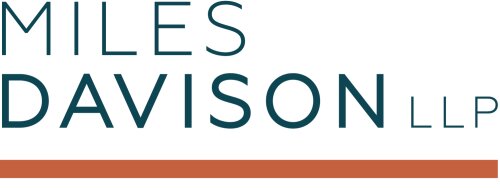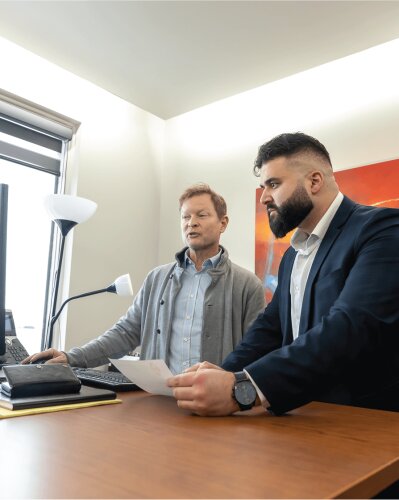Best Collaborative Law Lawyers in Calgary
Share your needs with us, get contacted by law firms.
Free. Takes 2 min.
Free Guide to Hiring a Family Lawyer
List of the best lawyers in Calgary, Canada
About Collaborative Law in Calgary, Canada
Collaborative Law is a legal process in Calgary, Canada that allows individuals to resolve disputes without going to court. It involves both parties and their lawyers working together to find mutually beneficial solutions. This non-adversarial approach can often lead to quicker and less costly resolutions compared to traditional litigation.
Why You May Need a Lawyer
You may need a lawyer for Collaborative Law in Calgary if you are involved in a dispute with another party and want to find a resolution outside of court. Lawyers can help guide you through the process, protect your legal rights, and ensure that any agreements reached are fair and equitable.
Local Laws Overview
In Calgary, Collaborative Law is governed by specific rules and regulations set by the Alberta Collaborative Family Law Society. These rules outline the procedures and requirements for participating in Collaborative Law. It is important to work with a lawyer who is familiar with these local laws to ensure your case is handled correctly.
Frequently Asked Questions
1. What is the role of a lawyer in Collaborative Law?
In Collaborative Law, a lawyer acts as your legal advocate and advisor throughout the process. They help you understand your rights, negotiate with the other party, and draft any necessary legal documents.
2. How does Collaborative Law differ from mediation?
While both Collaborative Law and mediation involve resolving disputes out of court, Collaborative Law involves each party having their own lawyer present during negotiations. Mediation typically involves a neutral third party facilitating discussions between the parties.
3. Is Collaborative Law legally binding?
Any agreements reached through Collaborative Law are legally binding once they have been signed by both parties and ratified by the court. It is important to have a lawyer review any agreements to ensure they are fair and enforceable.
4. How long does the Collaborative Law process take?
The length of the Collaborative Law process can vary depending on the complexity of the case and the willingness of both parties to cooperate. Some cases may be resolved in a few meetings, while others may take several months to reach a final agreement.
5. What types of disputes can be resolved through Collaborative Law?
Collaborative Law can be used to resolve a wide range of disputes, including family law matters, civil disputes, and estate disputes. It is particularly effective in cases where ongoing relationships between the parties are important.
6. Can I switch to traditional litigation if Collaborative Law is unsuccessful?
If the Collaborative Law process is unsuccessful, both parties will need to hire new lawyers to represent them in court. Any information shared during the Collaborative Law process cannot be used in litigation, so starting over with new legal representation may be necessary.
7. How do I find a Collaborative Law lawyer in Calgary?
You can search for Collaborative Law lawyers in Calgary through the Alberta Collaborative Family Law Society website or by asking for referrals from friends, family, or other legal professionals.
8. What are the benefits of Collaborative Law over traditional litigation?
Collaborative Law often results in faster resolutions, lower costs, and more amicable outcomes compared to traditional litigation. It also allows both parties to have more control over the process and the final outcome.
9. Can I bring in other professionals, such as financial advisors, during the Collaborative Law process?
Yes, you can bring in other professionals, such as financial advisors or mental health professionals, to provide expert advice and support during the Collaborative Law process. These professionals can help both parties make informed decisions and reach mutually beneficial agreements.
10. What happens if one party is not acting in good faith during the Collaborative Law process?
If one party is not acting in good faith during the Collaborative Law process, the other party can choose to end the process and pursue a resolution through traditional litigation. It is important to work with a lawyer who can help protect your legal rights and ensure fair treatment throughout the process.
Additional Resources
For more information on Collaborative Law in Calgary, you can visit the Alberta Collaborative Family Law Society website at www.collaborativefamilylawsocietyofalberta.com. This website provides resources, information on finding a Collaborative Law lawyer, and details on the Collaborative Law process in Alberta.
Next Steps
If you are in need of legal assistance in Collaborative Law in Calgary, it is important to contact a qualified lawyer who specializes in this area of law. They can help guide you through the process, protect your legal rights, and work towards a fair resolution of your dispute.
Lawzana helps you find the best lawyers and law firms in Calgary through a curated and pre-screened list of qualified legal professionals. Our platform offers rankings and detailed profiles of attorneys and law firms, allowing you to compare based on practice areas, including Collaborative Law, experience, and client feedback.
Each profile includes a description of the firm's areas of practice, client reviews, team members and partners, year of establishment, spoken languages, office locations, contact information, social media presence, and any published articles or resources. Most firms on our platform speak English and are experienced in both local and international legal matters.
Get a quote from top-rated law firms in Calgary, Canada — quickly, securely, and without unnecessary hassle.
Disclaimer:
The information provided on this page is for general informational purposes only and does not constitute legal advice. While we strive to ensure the accuracy and relevance of the content, legal information may change over time, and interpretations of the law can vary. You should always consult with a qualified legal professional for advice specific to your situation.
We disclaim all liability for actions taken or not taken based on the content of this page. If you believe any information is incorrect or outdated, please contact us, and we will review and update it where appropriate.














